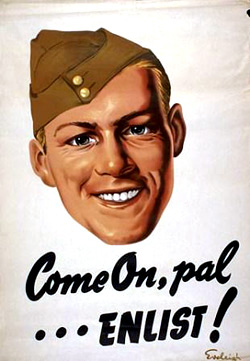Heroism
 To quote myself quoting an unlikable Maugham character last month, “a man who dies for his country dies because he likes it as surely as a man eats pickled cabbage because he likes it.” And while I don’t for a moment believe that anybody wants to die in combat, intuition tells me that many or most people who find themselves in combat situations get there in pursuit of other things that they do want … adventure, for example. Stability. Health insurance.
To quote myself quoting an unlikable Maugham character last month, “a man who dies for his country dies because he likes it as surely as a man eats pickled cabbage because he likes it.” And while I don’t for a moment believe that anybody wants to die in combat, intuition tells me that many or most people who find themselves in combat situations get there in pursuit of other things that they do want … adventure, for example. Stability. Health insurance.
We hear the word “hero” tossed around quite a bit these days, but what does it mean? If a young man who gets his leg blown off in pursuit of “some desperate glory” is a hero, why not the one who breaks his neck on the football field?
(The dictionary definitions of “hero” is very loose. It ranges from “a man of superhuman strength or courage” to “a person noted for special achievement in a particular field.” Strictly speaking, the local electrical supply store’s employee of the month is a hero.)
The notion that people choose military service for love of country has more to do with our desire to justify the obscenity of war, I believe, than any honest assessment of actions or motives. Youth will have its fling. Guns, motorcycles, beer, sex, rock ‘n roll. Risks acceptable to people not yet convinced of their mortality. But heroic? That, it seems to me, is a label we place in service to ourselves.